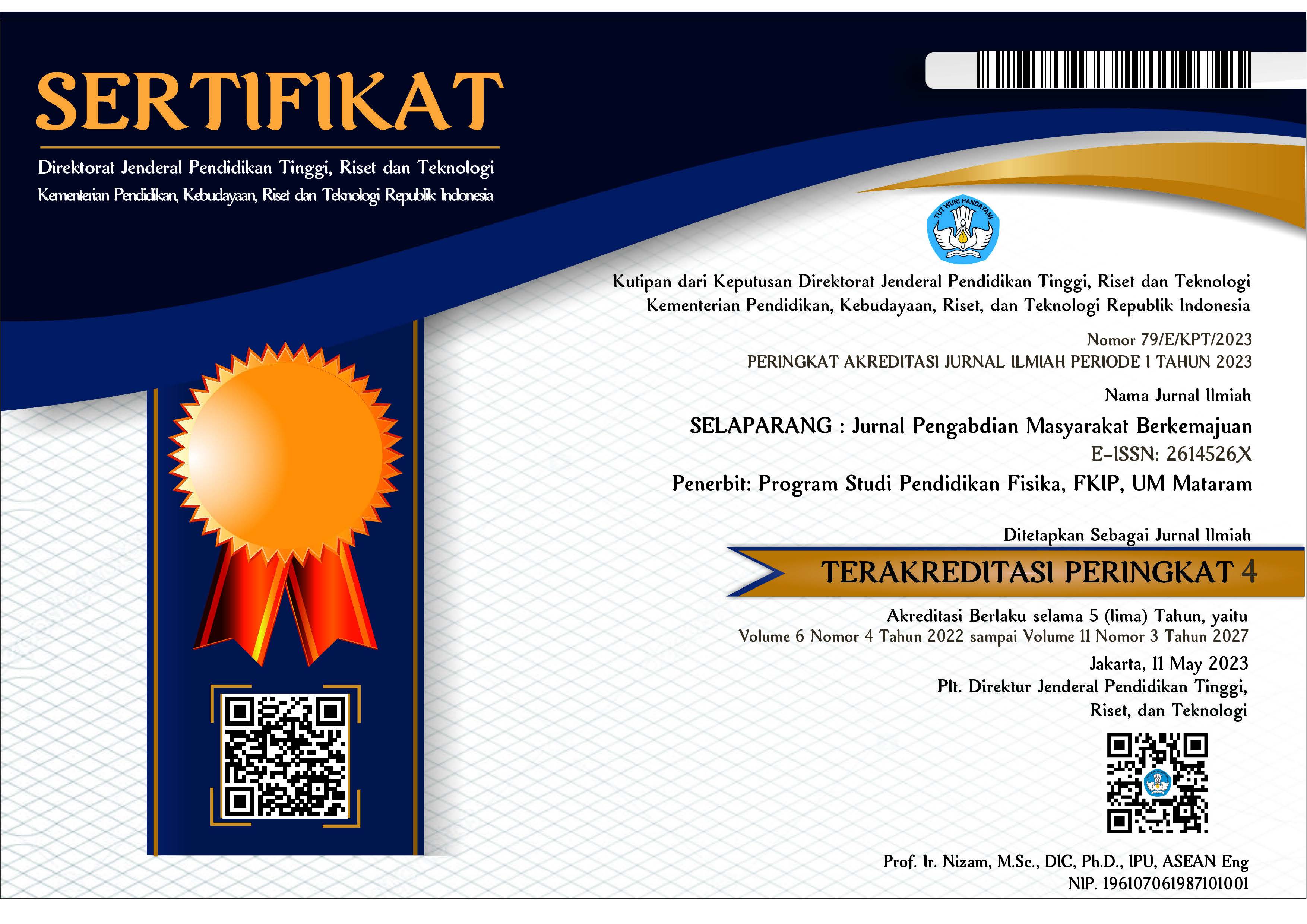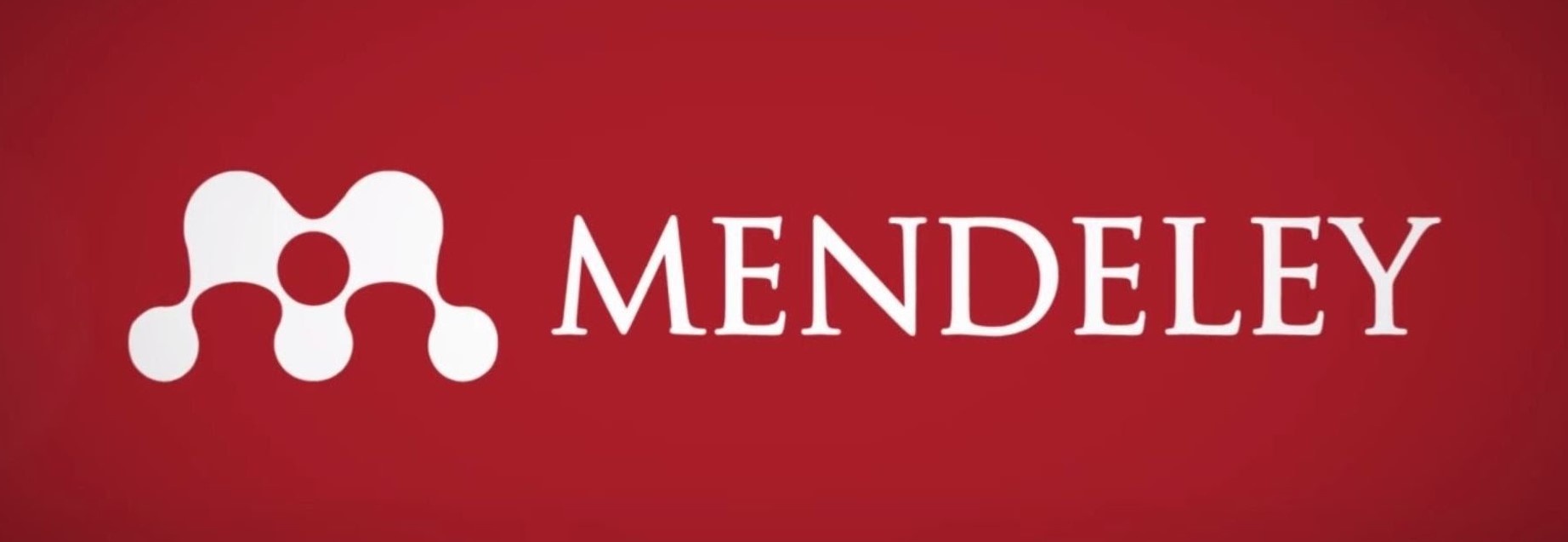Program pendampingan penulisan ilmiah dan eksplorasi kesenjangan penelitian menggunakan teknologi kecerdasan buatan bagi Dosen Fakultas Ilmu Komputer Universitas Amikom Purwokerto
Abstract
Abstrak
Permasalahan yang dihadapi oleh mitra sasaran Fakultas Ilmu Komputer (FIK) Universitas Amikom Purwokerto adalah rendahnya jumlah dosen yang memiliki gelar doktor yang berperan penting untuk meningkatkan kualitas pendidikan dan penelitian. Berdasarkan data FIK, dari 72 dosen, hanya 6 yang memiliki gelar doktor. Rendahnya jumlah doktor ini disebabkan karena dosen kesulitan dalam menentukan tema penelitian yang tepat dan relevan dengan kepakaran mereka, kesulitan menemukan dan merumuskan kesenjangan penelitian, serta kesulitan dalam merumuskan inovasi dan kebaruan riset. Berdasarkan permasalahan tersebut, kami memberikan solusi menyelenggarakan program Bootcamp Doktoral: Penulisan ilmiah dan identifikasi kesenjangan penelitian menggunakan teknologi kecerdasan buatan. Target yang diharapkan dari program ini, yakni dosen di lingkungan fakultas ilmu komputer dapat meningkatkan kompetensi akademik, mengembangkan jaringan profesional, meningkatkan keterampilan penelitian dan penulisan publikasi, memperoleh motivasi dan inspirasi untuk studi lanjut S3, mengembangkan soft skill, serta mampu beradaptasi dengan tren teknologi terbaru. Berdasarkan target luaran yang telah ditetapkan, metode pengabdian masyarakat yang digunanakan dalam program ini mencakup 3 tahap utama, yaitu tahap persiapan kegiatan, implementasi kegiatan, dan pelaporan kegiatan. Hasil evaluasi pelaksanaan program pendampingan melalui umpan balik peserta pada hari selasa, 20 Agustus 2024 secara daring diperoleh hasil bahwa seluruh peserta webinar dapat memahami pengoperasian tools berbasis teknologi kecerdasan buatan untuk penulisan ilmiah, dan memahami etika penggunaan teks atau data dari hasil tools kecerdasan buatan dalam konteks penelitian.
Kata kunci: pendampingan; kecerdasan buatan; penulisan ilmiah; penelitian; doktoral
Abstract
The problem faced by the target partners of the Faculty of Computer Science Universitas Amikom Purwokerto is the low number of lecturers who have doctoral degrees who play an essential role in improving the quality of education and research. The low number of doctors is caused by lecturers having difficulty determining the correct and relevant research themes with their expertise, difficulty finding and formulating research gaps, and difficulty formulating innovation and research novelty. Based on these problems, we provide a solution to organize a Doctoral Bootcamp program: Scientific writing and identifying research gaps using artificial intelligence technology. The expected target of this program is that lecturers in the faculty of computer science can improve their academic competence, develop professional networks, improve research skills and publication writing, gain motivation and inspiration for further doctoral studies, develop soft skills, and be able to adapt to the latest technological trends. Based on the set output targets, the community service method used in this program includes three main stages: the activity preparation stage, activity implementation, and activity reporting. The results of the evaluation of the implementation of the mentoring program through participant feedback showed that all webinar participants were able to understand the operation of artificial intelligence technology-based tools for scientific writing and understand the ethics of using text or data from the results of artificial intelligence tools in the context of research.
Keywords: mentoring; artificial intelligence; scientific writing; research; doctoral
Keywords
Full Text:
PDFReferences
Colbeck, C. L. (2008). Professional identity development theory and doctoral education. New Directions for Teaching and Learning, 2008(113), 9–16. https://doi.org/10.1002/tl.304
Dann, R., Basford, J., Booth, C., O’Sullivan, R., Scanlon, J., Woodfine, C., & Wright, P. (2019). The impact of doctoral study on university lecturers’ construction of self within a changing higher education policy context. Studies in Higher Education, 44(7), 1166–1182. https://doi.org/10.1080/03075079.2017.1421155
Dopita, M., & Vašťatková, J. P. (2021). Paradoxes of doctoral studies in education sciences in the Czech Republic. Qualitative Sociology Review, 17(1), 60–71. https://doi.org/10.18778/1733-8077.17.1.5
Dos Santos, L. M., & Lo, H. F. (2018). The development of doctoral degree curriculum in England: Perspectives from professional doctoral degree graduates. International Journal of Education Policy and Leadership, 13(6). https://doi.org/10.22230/ijepl.2018v13n6a781
Fernandes, R., Ananda, A., Montessori, M., Firman, F., Putra, E. V., Naldi, H., & Fitriani, E. (2021). Adaptasi Dosen Digital Immigrant Terhadap Pelaksanaan Pembelajaran pada Masa Pandemi Covid-19. Jurnal Socius: Journal of Sociology Research and Education, 8(1), 59–72. https://doi.org/10.24036/scs.v8i1.298
Gonçalves, S. F., Sanches, T., Batista, M., Duarte, C., & Miranda, J. (2021). Ph.D. Supervision: Doctoral Students Perceptions, Expectations and Needs. EDULEARN21 Proceedings, 1(July), 11701–11708. https://doi.org/10.21125/edulearn.2021.2446
Kardoyo, K., Zulaeha, I., Nurkhin, A., & Muhsin, M. (2020). Strengthening Lecturer Resources Model; the Efforts to Improve the Reputation of Universities in the Disruptive Era. Proceedings of the International Conference on Education, Science and Technology - ICESTech 2020, 1–8. https://doi.org/10.32698/tech3227
Priadi, A. A., Cahyadi, T., Purba, D., Harini, N. V., & Zuhri, Z. (2019). Recognition of Prior Learning for Master Marine with Indonesian Qualifications Framework. Proceedings of the 3rd International Conference on Education Innovation (ICEI 2019), 387, 268–273. https://doi.org/10.2991/icei-19.2019.62
Rahayu, A. P., Subagiyo, L., & Rahayu, S. M. (2019). Achievement on the Role of Competitive University: A Case Study at Muhammadiyah University of East Kalimantan (UMKT). Proceedings of the Educational Sciences International Conference (ESIC 2018). https://doi.org/10.2991/esic-18.2019.29
Saifulloh, A. M., & Darwis, M. (2020). Manajemen Pembelajaran Dalam Meningkatkan Efektivitas Proses Belajar Mengajar Di Masa Pandemi Covid-19. Bidayatuna: Jurnal Pendidikan Guru Madrasah Ibtidaiyah, 3(2), 285–312. https://doi.org/10.36835/bidayatuna.v3i2.638
Suhaemi, M. E., & Aedi, N. (2015). A Management Strategy for the Improvement of Private Universities Lecturers’ Professional Competences. International Education Studies, 8(12), 241. https://doi.org/10.5539/ies.v8n12p241
Trinova, Z., & Kustati, M. (2019). Lecturers’ Professionalism: Reflective Experiences among Islamic State Universities in West Sumatera. Tadris: Jurnal Keguruan Dan Ilmu Tarbiyah, 4(1), 63–75. https://doi.org/10.24042/tadris.v4i1.4117
Wahab, A. A., & Kurniady, D. A. (2020). Phenomenology of the Policy of Lecturer Development at Higher Education in Indonesia. Proceedings of the 3rd International Conference on Research of Educational Administration and Management (ICREAM 2019). https://doi.org/10.2991/assehr.k.200130.181
Wahyudi, W. (2022). FIVE COMPONENTS OF WORK MOTIVATION IN THE ACHIEVEMENT OF LECTURER PERFORMANCE. SCIENTIFIC JOURNAL OF REFLECTION : Economic, Accounting, Management and Business, 5(2), 466–473. https://doi.org/10.37481/sjr.v5i2.528
Xu, X. (2023). A Study of Engineering Doctoral Students’ Research Experience and Degrees of Satisfaction in China. Proceedings of the 2023 4th International Conference on Education, Knowledge and Information Management (ICEKIM 2023), 2, 2011–2017. https://doi.org/10.2991/978-94-6463-172-2_224
Zulfikar, T., Emawati, E., Dahliana, S., Akmal, S., & Nuruddin Hidayat, D. (2022). Prospects and Challenges towards Professional Development of English Lecturers in Islamic Tertiary Education in Indonesia. World Journal of Education, 12(4), 21–34. https://doi.org/10.5430/wje.v12n4p21
DOI: https://doi.org/10.31764/jpmb.v8i4.26890
Refbacks
- There are currently no refbacks.

This work is licensed under a Creative Commons Attribution-ShareAlike 4.0 International License.
______________________________________________________
Jurnal Selaparang
p-ISSN 2614-5251 || e-ISSN 2614-526X
EDITORIAL OFFICE:



















